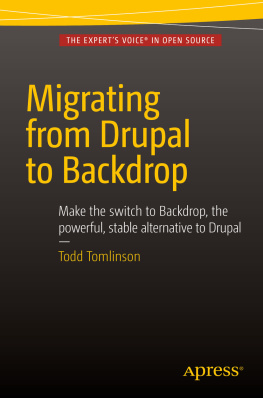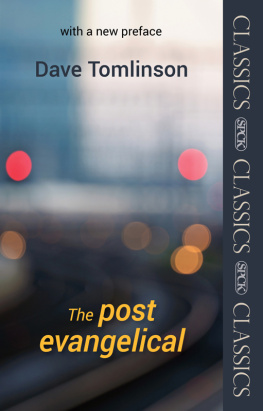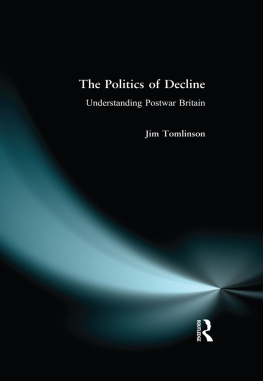The Tools of Philosophy
By
Bill Tomlinson
E-BookTime, LLC
Montgomery, Alabama
The Tools of Philosophy
Copyright 2018 by Bill Tomlinson
All rights reserved. No part of this book may be reproduced or transmitted in any form or by any means, electronic or mechanical, including photocopying, recording, or by any information storage and retrieval system, without permission in writing from the copyright owner.
First Edition
Published November 2018
E-BookTime, LLC
6598 Pumpkin Road
Montgomery, AL 36108
www.e-booktime.com
To Debra Sheets
forever
Contents
Introduction
Values
Devices
Principles
Methods
Additional Concepts
Final Thoughts
Introduction
Lets start at the beginning. What is philosophy? The discipline of philosophy is the study of knowledge, reality and value. The fundamental questions of philosophy are thus:
What can be known?
What is real?
What really matters?
Is it possible to get answers to these questions without making assumptions? And if we need to make assumptions, should the assumptions be questioned? They could be false, and if they are false then anything we derive from them is quite dubious. Can philosophy be assumptionless and still give us anything of value? This seems like a major problem for those in philosophy.
It might appear that science attempts to answer these questions. What is real? Matter and energy are real. What can be known? Whatever we can confirm by experimentation. What really matters? Its pretty clear that science hasnt a clue. Scientists are more likely to suggest that what matters is meaningless, irrelevant or a personal question. Science makes the main assumption that to understand the world, we must look at it. We cant understand it by merely thinking about it, as Plato thought. We must carefully observe it. That seems a good place to start for science and the physical world. But its pretty clear that all science addresses is the physical. Some scientists even assume/conclude that thats all that is worth thinking about, maybe because thats all they can access with empirical tools, i.e., tools that help them examine the world. When all you have is a hammer, everything looks like a nail.
We could note that the positions to understand the world one must examine the world and the material world is all that is important because thats all we can confirm with our senses are both philosophical positions. There is no experiment that is going to confirm or disconfirm either one of these positions. Thats the nature of a philosophical position. No philosophical position will be shown or refuted by an experiment. But if the material world is all there is, i.e., matter and energy, and matter and energy have no intrinsic value, then nothing has value.
It is tempting to disregard any talk about anything that is not about the material world. The reason is that science has done a very good job of accounting for the material part of the world, the part that is important and common to everyone. Plus, those who talk about more immaterial things often dont have the best case to make, especially when the conversation wanders into talk of the supernatural. But values are important and thoughts are important, and so far those notions are not really addressed well in the language of hard science.
How can philosophers proceed without assuming things that may turn out to be false? They have developed tools. At the most fundamental level those tools need to be assumptionless. As it turns out, foundational tools are quite common, used by philosophers and non-philosophers alike. To be used effectively they must be understood. To understand them, we need to know their powers and their limitations.
To a philosopher, philosophical questions are the most interesting. You might expect that. After all, this may be why they went into philosophy in the first place. But non-philosophers, upon occasion, have also found philosophical questions very compelling, anything from am I wasting my life?, to have I got it all wrong? They may have even tried to answer these questions usually unsuccessfully, primarily because they didnt have the right tools or they didnt know how to use those tools. How do people outside of philosophy deal with these questions? They either pick an answer that they find appealing that they see as good as any other answer and try to live with it, or they regard the question as unanswerable and try to ignore it. A philosopher is not happy with either of these solutions.
To understand why philosophy goes as it goes and does what it does, one has to understand the needs and character of those who are attracted to philosophical issues. I would put the character of those who are drawn to philosophy in two areas:
A strong need to address cognitive dissonance and confusion.
A strong tendency to doubt and be skeptical, i.e., a need to have ones beliefs and positions well founded.
Cognitive dissonance is the uncomfortable feeling we get when things dont make sense, i.e., a contradiction, a paradox, a puzzle that initially seem difficult to resolve. If philosophers cant resolve these quandaries then the very process of reasoning is at stake. Without reasoning there is no making sense of anything. Things must make sense to a philosopher. This character trait compels much in philosophy.
Also, philosophers often doubt traditional, conventional or authoritative wisdom. They need their positions to be well founded because every decision made about anything in life will depend upon whether their foundational beliefs are right or wrong. If some minor position is false but it was strongly felt, then the question must be asked. How did that position get established? It is likely an indicator that something else is wrong in their foundation, something maybe not so minor.
These are people who are focused on solving philosophical problems, arguably the most important questions. Are these issues in good hands? They may very well be. After all, these are the people who want to make sense of things and want their answers to be on solid ground. The need to address confusion and doubt will determine the tools that will be used to address the most vital questions, philosophical questions. Maybe this is one of your needs. Possibly you too are one of these explorers.
Its quite natural, given our social context, to be discouraged at finding answers to important questions. Its not like philosophers are making discoveries on a regular basis and then reported in the news. Philosophical questions have a reputation for being unanswerable. Added to that is our exposure to philosophy published in popular literature, by people who may not even know what a tool of philosophy is. We shouldnt expect much from a work by someone outside the discipline just because it is in the philosophy section of the bookstore.
The good news is that to address philosophical questions we dont need to have an answer that everyone agrees upon. We need to remember that we are asking questions that are our questions. We may have a different kind of need for asking those questions than others and we may have a different meaning for those questions. So, if our answers dont address the need of someone else, that is not a problem. It is an attempt to address our needs, and if it does that successfully, thats enough.
Not that we should disregard the work of others on similar issues, because they may have asked questions that we will want to ask, but we should note that a philosophical quest is a personal quest. We should pay attention to the work of others when it helps, but go our own way when it doesnt. We should also note that as a matter of fact, most people in philosophy find answers to their most important questions to their own satisfaction. Did they just give up and/or settle for the answer that they would like to be true? There is good reason in this book to think not, but of course, you are the one to decide.













